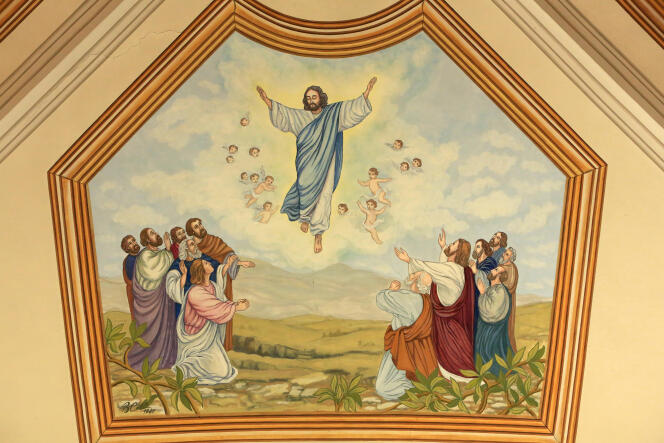


The Ascension is the third part of an essential trio of events in the Christian calendar, comprising Jesus' crucifixion, commemorated on Good Friday; his resurrection, celebrated on Easter Sunday; and finally his rapture into heaven, 40 days later – on a Thursday, that is.
For Catholics and a large proportion of Protestants, followers of the Gregorian calendar (introduced in 1582 by Pope Grégoire XIII), the 2024 celebrations will take place on Thursday, May 9. For the Orthodox, still using the Julian calendar (solar calendar introduced by Julius Caesar in 46 BC), the date is Thursday, June 13.
Ascension Thursday has remained a national holiday in France since the concordat agreement between Napoleon Bonaparte and Pope Pius VII, in 1801. In other Catholic countries, such as Spain and Italy, bishops decided in the 1970s to celebrate Ascension Day on a Sunday, so as not to add a non-working day to the calendar. But in Austria, Germany and Switzerland, as in France, Ascension Thursday remains a day off. Here are five questions to better understand its meaning and symbols.
According to the Gospels, Jesus died on the cross, was buried and resurrected three days later. For the next 40 days, he appeared to his apostles, friends and disciples, both men and women, to give them his final teachings on the reign of God.
At the end of this period, Jesus invited his apostles to Bethany, on the Mount of Olives, east of Jerusalem. He disappeared before their eyes, enveloped in a cloud that took him to heaven. The episode is recounted in the Gospels by Mark: "After the Lord Jesus had spoken to them, he was taken up into heaven and he sat at the right hand of God" (Mark 16:19). And Luke: "And he led them out as far as Bethany, and lifting up his hands he blessed them. While he blessed them, he parted from them and was carried up into heaven" (Luke 24:50-51).
Stunned by this vision, the Eleven were challenged by two figures dressed in white: "Men of Galilee, why are you standing here looking into the sky? Jesus, whom you saw taken up from you into heaven, will come back in the same way as you saw him go into heaven" (Acts of the Apostles 1, 11).
Early Christian communities seem to have celebrated Easter for 50 days, until Pentecost, which marks the coming of the Holy Spirit. They then gradually distinguished different dates to commemorate the death, resurrection and ascension of Jesus and the gift of the Holy Spirit.
You have 65.64% of this article left to read. The rest is for subscribers only.
